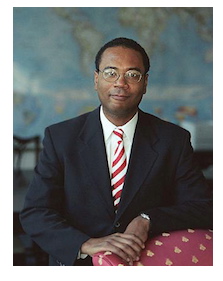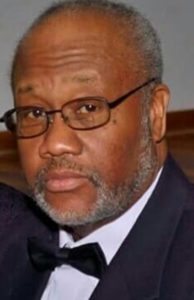
13 Apr 2018 Black Activists Praise Trump Welfare Reform Plans
Ambitious Executive Order on “Economic Mobility” Called a “Welcome Development”
Project 21 to Issue “Blueprint for a Better Deal for Black America” Aligning with Aspects of Trump Reform Agenda
Washington, D.C. – Calling it a “welcome development that will lead to greater economic prosperity,” black conservatives from the Project 21 black leadership network are praising the Trump Administration’s new executive order designed to improve and expand upon welfare reform efforts begun more than two decades ago.
“With communities across the country beginning to truly enjoy the recently-enacted tax cuts, the Trump Administration is now turning to welfare reform. This is sorely needed, and the President’s attention to it is greatly appreciated,” said Project 21 Co-Chairman Stacy Washington, a nationally-syndicated talk radio host. “This new executive order, outlining an ambitious overhaul over a short period of time, is rooted in nine ‘Principles of Economic Mobility’ meant to streamline the way government works while promoting beneficial bedrock behaviors that most often lead to success in American society: strengthening marriage and family, and enshrining work as a necessary good. With the disconnect of record low unemployment and still too many people on government assistance, this is a welcome development that will lead to greater economic prosperity for families who need it most.”
President Donald Trump’s executive order on welfare reform, issued on April 10, seeks “to promote economic mobility, strong social networks and accountability to American taxpayers.” Executive Order 13828 notes: “While bipartisan welfare reform enacted in 1996 was a step toward eliminating the economic stagnation and social harm that can result from long-term Government dependence, the welfare system still traps many recipients, especially children, in poverty and is in need of further reform and modernization in order to increase self-sufficiency, well-being and economic mobility.”
In declaring it federal policy “to reform the welfare system,” President Trump’s new executive order sets up “Principles of Economic Mobility” to improve employment outcomes, promote stronger families, address societal problems such as single-parent households and incarceration, make government entities accountable, reduce bureaucracy and allow more private partnerships in anti-poverty programs. It calls for increased work requirements for lifting people out of poverty, and offers flexibility for community-specific plans. New policies are expected to be developed within nine months.
Project 21 Co-Chairman Horace Cooper, a former leadership aide on Capitol Hill and former constitutional law professor, said: “The White House is to be commended for pushing welfare reform. Working and middle-class families in particular need reforms in federal policies that currently discourage job creation and individual initiative. Leaders in Congress and in state legislatures across the country should ratify this action and add additional incentives for work.”
Project 21 will soon release its “Blueprint for a Better Deal for Black America,” which contains several policy recommendations that closely align with and complement the Trump Administration’s new welfare reform agenda. Project 21’s proposals include:
- Adding a work requirement to be eligible for the Supplemental Nutritional Assistance Program (SNAP, or “food stamps”);
- Allowing employers in special low-income zip codes to be exempt from the federal minimum wage or be permitted to pay a discounted 50-percent minimum wage;
- Analyzing new federal regulations to determine if they pose undue burdens to the hiring of minorities, youth or low-skilled workers;
- Repealing the Jim Crow-era Davis-Bacon Act concerning federal contracting on construction projects;
- Allowing more faith-based participation in federally-funded social services programs and
- Improving educational opportunities by replacing education policies that set blacks up to fail with ones that help them to succeed.
“I agree with President Trump on the need for welfare reform that builds on the initial efforts begun over 20 years ago. We need to hold able-bodied welfare recipients accountable and give them a ‘hand-up’ out of poverty. They should be required to be training or working so that benefits are not a long-term solution. Local governments can play a larger role, both in confirming progress as well as sparking innovation that helps others,” said Project 21 member Emery McClendon, a tea party activist and U.S. Air Force veteran. “This is one case where ‘pay to play’ would be fair game. The government pays, and the recipient plays by helping to work themselves out of poverty.”
To book an interview with a member of Project 21 about this or another nonpartisan issue affecting black America, contact Judy Kent at (703) 759-0269 or (703) 477-7476.
Project 21, a leading voice of black conservatives for over 25 years, is sponsored by the National Center for Public Policy Research. Its members have been quoted, interviewed or published over 40,000 times since the program was created in 1992. Contributions to the National Center are tax-deductible and greatly appreciated, and may be earmarked exclusively for the use of Project 21.
Founded in 1982, the National Center for Public Policy Research is a non-partisan, free-market, independent conservative think-tank. Ninety-four percent of its support comes from some 60,000 individuals, less than four percent from foundations and less than two percent from corporations. Sign up for email updates here. Follow us on Twitter at @NationalCenter for general announcements. To be alerted to upcoming media appearances by National Center staff, follow our media appearances Twitter account at @NCPPRMedia.
-30-






